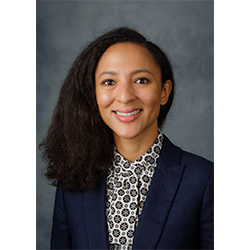
Join the Institute for the Study of Islamic Thought in Africa (ISITA) for a talk in our Islam in Africa - New Books in the Field series.
Lunch will be served at the talk.
Kimberly T. Wortmann will discuss her recent book, Society of the Righteous: Ibadhi Muslim Identity and Transnationalism in Tanzania (Indiana University Press, 2024).
Description: Although the rule of the Omani sultanate in Tanzania came to an end following the Zanzibar Revolution in 1964, the legacy of its empire still exists today, along with its distinctive religious identity. The Ibadhi Muslims of Omani descent, who are neither Sunni nor Shi'a, have used a message of tolerance and harmonious coexistence to spread their beliefs across North and East Africa in a post-revolution and post-independence era.
In Society of the Righteous, Kimberly T. Wortmann explores how the Ibadhi-Omani community in Tanzania has engaged in charitable activities, cooperation within the Muslim community, and economic development, despite facing suspicions of foreign influence and elitism. The focus is on the Istiqaama Muslim Community, an international charity network established in Oman and Tanzania in 1995. This ethnographic and transregional study documents the strategies employed by the "People of Truth and Righteousness" to preserve their unique religious practices and beliefs.
Society of the Righteous moves beyond the typical discussions on global Muslim religion and politics, such as tradition versus modernity, conflicts between different branches of Islam, and the global war on terror. Instead, it explores the intricacies of a religious community whose significance has been obscured by the limitations of area studies paradigms. It illuminates the complexities of religious identity, transnational networks, gender relations, and the power of collective memory in shaping narratives of belonging, cultural preservation, and change in an increasingly interconnected world.
Dr. Kimberly T. Wortmann is an Associate Professor in the Department for the Study of Religions and a Kulynych Family Faculty Fellow at Wake Forest University. She earned her Ph.D. in the Study of Religion from Harvard University in 2018, an M.T.S. in African Religions and Islamic Studies from Harvard Divinity School in 2011, and a B.A. in Religious Studies with a minor in Political Science from Macalester College in 2007.
Trained in Islamic and African Studies, Wortmann’s scholarship examines transregional networks of knowledge exchange, transmission, and production between East Africa and the Arabian Gulf. She has lived and studied in Uganda, Egypt, Yemen, Tanzania (including the islands of Zanzibar), and Oman.
Her research has been supported by the National Humanities Center, the Wake Forest Humanities Institute, the William C. Archie Fund for Faculty Excellence, the Fulbright Program, the Weatherhead Center for International Affairs, and the Harvard Frederick Sheldon Traveling Fellowship, among others. Her 2024 book, Society of the Righteous: Ibadhi Muslim Identity and Transnationalism in Tanzania (Indiana University Press), examines the moral, social, and political dimensions of Ibadi Muslim reform movements in East Africa. The book has been named a finalist for the African Studies Association’s (ASA) Bethwell A. Ogot Book Prize for the best book in Eastern African Studies. Wortmann has also published several articles on Ibadi/Ibadhi Islam in Tanzania and Oman. Her current project, Banking on Belief: Islamic Finance, Religion, and Governance in Uganda, explores the intersections of religion, economy, and statecraft in Kampala.
Wortmann joined the Wake Forest faculty in 2018 and is an active member of the African Studies and Middle East and South Asia Studies minors. She currently serves as co-chair of the Contemporary Islam Unit at the American Academy of Religion and has previously served on the steering committee of the Islam in Africa Group (IASG) at the ASA.
Audience
- Faculty/Staff
- Student
- Public
- Post Docs/Docs
- Graduate Students
Interest
- Academic (general)
- Religious/Spiritual
- Global/Multicultural
- Community Engagement